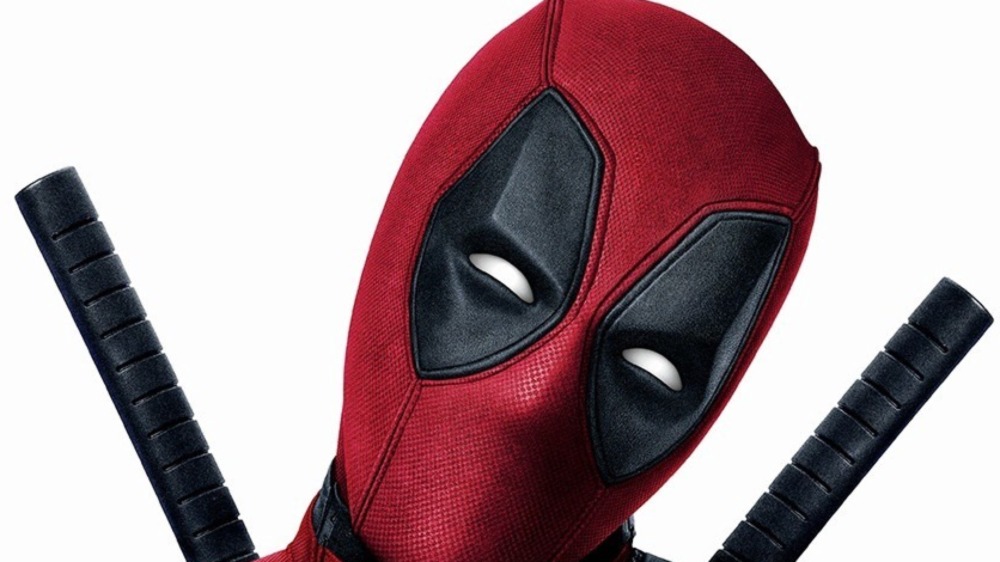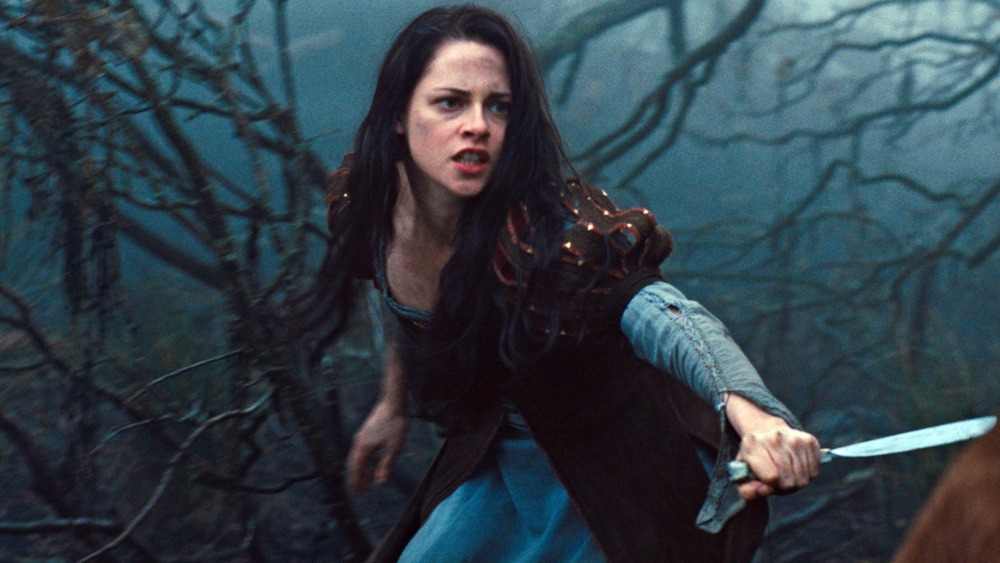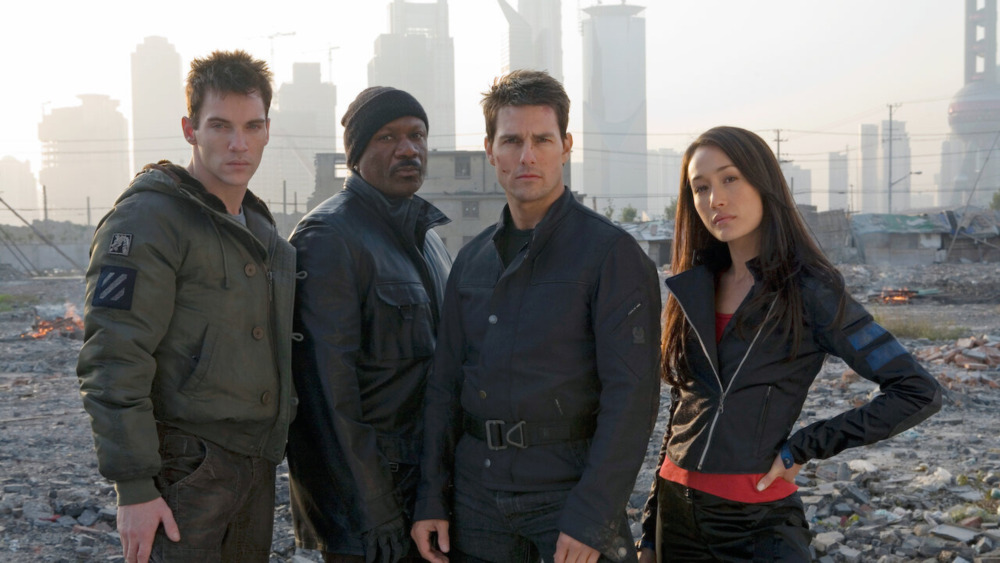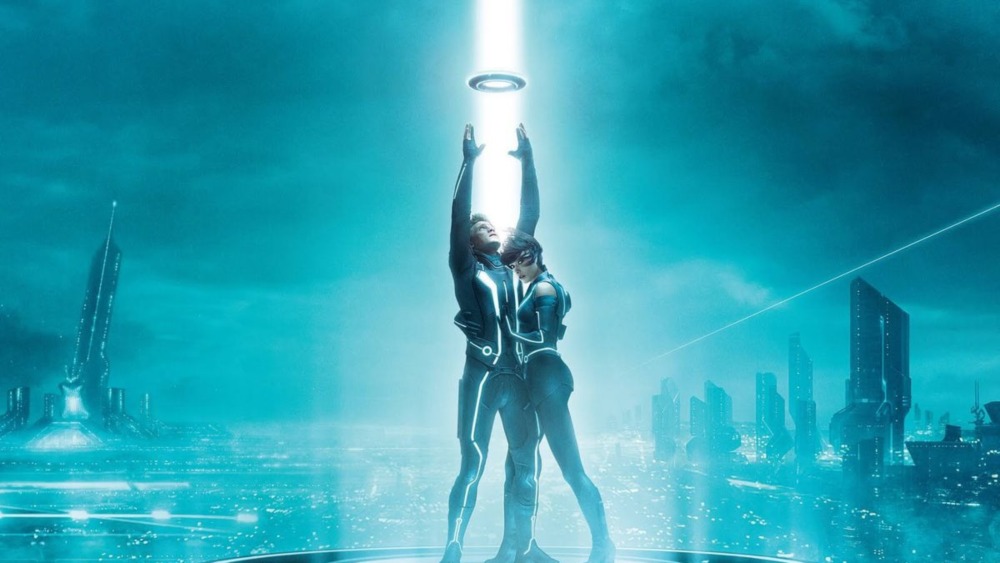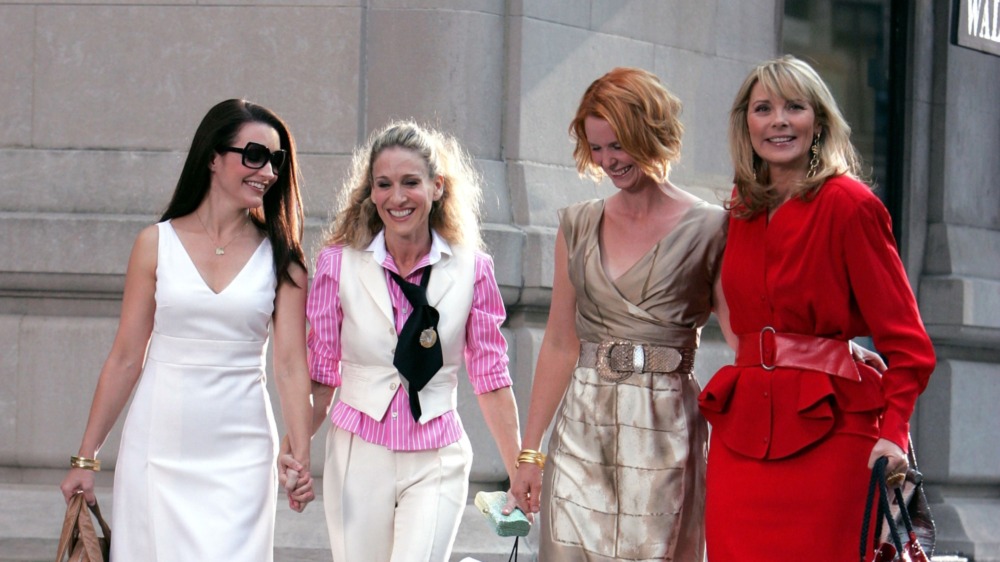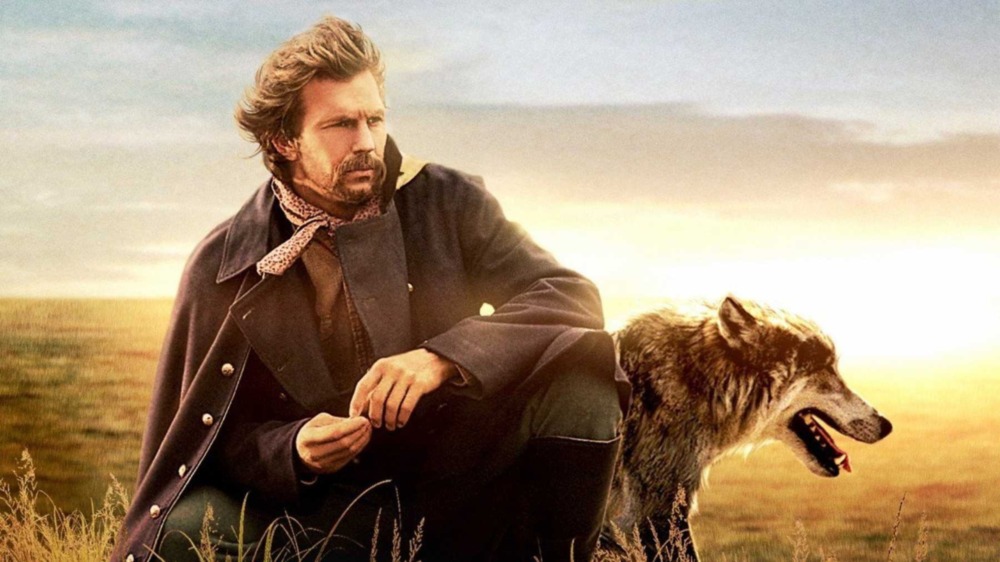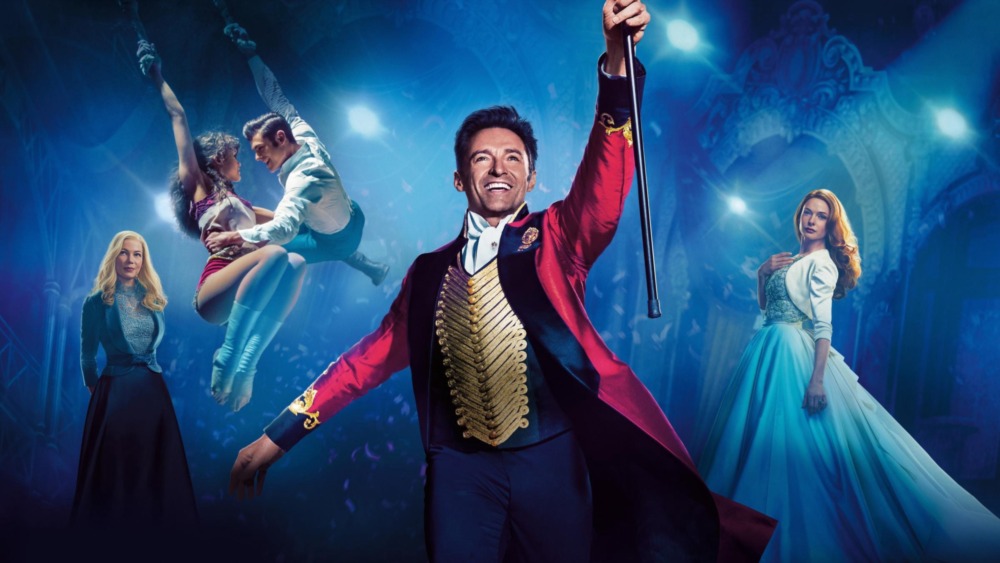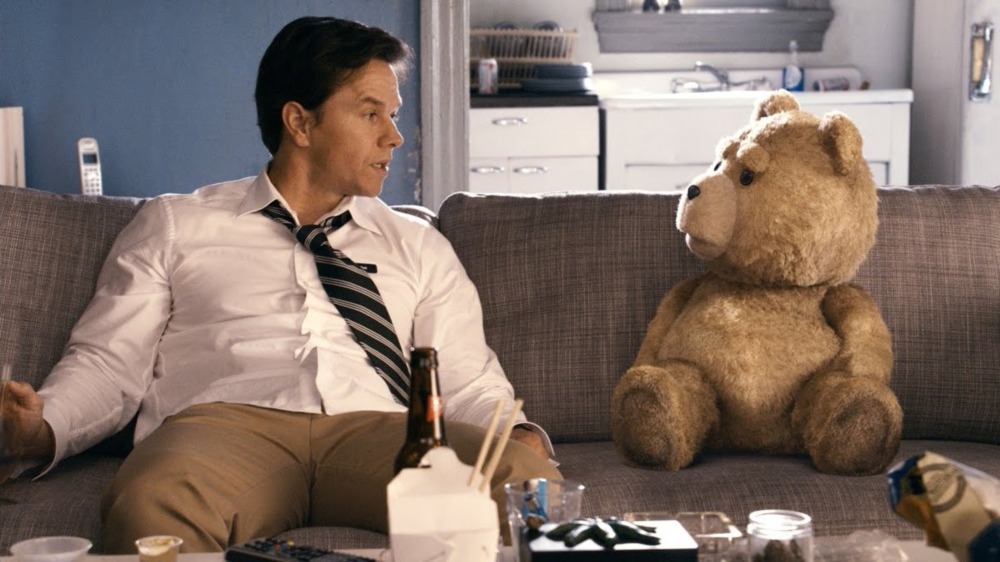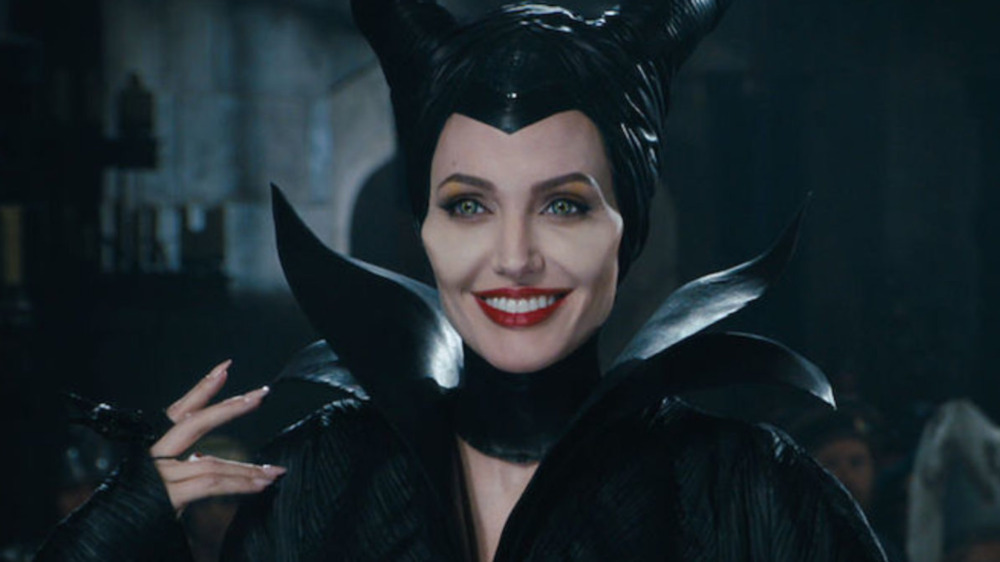The Biggest Directorial Debuts Of All-Time
With the upcoming Mortal Kombat, director Simon McQuoid will go from helming memorable commercials (like the beloved Duracell Star Wars ad) to directing feature-length movies. It's a massive step up for any first-time film director, but it's certainly not the first time a newbie filmmaker went big. In fact, modern blockbusters are littered with examples of first-time filmmakers behind the camera. Of course, it doesn't work out every time — but the ones that have scored at the box office did so in spectacular fashion.
Sometimes, the presence of a rookie filmmaker can imbue projects with a fresh perspective you simply couldn't get from a seasoned auteur. That perspective can resonate with audiences on a significant level, as the biggest directorial debuts of all-time at the worldwide box office attest.
Although many of these successful debut blockbusters thrived due to very different and very specific circumstances, they show that sometimes, handing the reins of a major project to someone new to the form can result in a film that is special both artistically and financially.
One note before going forward: this list pertains exclusively to live-action films, solely because it's far more common for artists to make their directorial debuts on mega-budgeted projects in the world of animated filmmaking. With that said, let's look at the highest-grossing directorial debuts of all-time.
Rupert Sanders was the fairest of them all with "Snow White & The Huntsman"
Back in 1937, the box office success of Snow White and the Seven Dwarfs gave birth to a whole new way of making movies through animated filmmaking. While not nearly as impactful as that inaugural Disney cartoon, 2012's Snow White and the Huntsman proved the enduringly persistent financial viability of the Snow White mythos. This grim and gritty take on the whole White story placed Kristen Stewart and Chris Hemsworth in the lead roles of the production and put rookie Rupert Sanders in the director's chair.
Sanders was making his first foray into feature-length directing, having already directed a number of commercials and music videos. It was a lavish first step into longer-form filmmaking, considering the star-studded cast and the ubiquity of digital effects work in Snow White and the Huntsman.
Reviews were mixed, but Huntsman turned out to be an indisputable hit after grossing $396.6 million worldwide. Stewart and Hemsworth were both hot commodities, with the former coming off the Twilight films and the latter having broken out in Thor. Pairing the duo up in a retelling of a famous fairy tale was enough to get summer moviegoing audiences to line up in droves, proving that although it had been a long time since 1937, the story of Snow White still had enough appeal to make an A-lister out of an unknown director.
J.J. Abrams accepted "Mission: Impossible III" as his directorial debut
Nowadays, J.J. Abrams is known for directing a pair of Star Wars movies that grossed $1 billion-plus worldwide each, with one of them, The Force Awakens, becoming the first non-James Cameron film in history to crack $2 billion-plus worldwide. Long before those gargantuan box office hauls, however, Abrams had a more modest start as a director with the 2006 action sequel Mission: Impossible III.
Abrams, who had extensive experience as a TV director and a screenwriter (remember Alias?), was far less of a household name than prior Mission: Impossible helmers Brian de Palma and Jon Woo. Abrams would be making his directorial film debut with the project, and although his past TV efforts were sort of in the same neighborhood, it was hardly a slam dunk.
The resulting feature would gross $399.3 million, significantly above the worldwide box office gross of your average directorial debut. However, it was a small step down from the previous two movies in the franchise, which had each grossed over $450 million worldwide. That made Mission: Impossible III a small financial disappointment, but it still impressed Paramount Pictures brass enough to give Abrams a chance to reboot the Star Trek franchise. In the process, Abrams' trajectory as a director of a massive blockbusters was assured.
Joseph Kosinski took a spin with "Tron: Legacy"
Despite being unspeakably influential on the world of visual effects, the original Tron was not a box office phenomenon when it was released in 1982. Much like fellow sci-fi cult classic The Thing, Tron failed to find much appreciation from 1982 moviegoers.
In the years that followed, however, a massive cult following would spring up while fans clamored for further adventures set in this universe. That fervor, plus the unquenchable studio desire to create new blockbuster franchises, would eventually inspire Disney to return to The Grid for a new 21st-century adventure. That endeavor resulted in Tron: Legacy, helmed by Joseph Kosinski in his feature-length directorial debut.
Having already directed commercials for projects like Halo 3, Kosinski had plenty of experience with both science-fiction and video games, areas of expertise that would serve him well on Tron: Legacy. The final product eventually premiered in December 2010 after an extensive marketing campaign that spanned multiple San Diego Comic-Cons and made heavy use of imagery conjured up under the guidance of Kosinski.
Once it hit theaters, Tron: Legacy grossed $400.06 million worldwide. It actually fared decently domestically with a $172 million gross, but its international numbers left something to be desired as it grossed just $228 million in those territories. Still, the worldwide haul of Tron: Legacy provided a reasonably successful launchpad for Kosinski's career as a director.
Director Michael Patrick King discovered that "Sex and the City" sells
Michael Patrick King was already well-immersed in the world of Sex and the City prior to taking the reins on directing the TV show's first theatrically-released movie. Having directed several episodes of the program and occupying an executive producer position on the production, King certainly knew his Carrie Bradshaws from his Charlotte Yorks.
Sure, King hadn't directed a motion picture prior to 2008's Sex and the City feature, but who needs an experienced auteur when you have an expert from the TV show? Not only did King know the storylines inside and out, but he could also help ensure that fans of the groundbreaking HBO program got exactly what they expected when they went to see the film on the big screen.
King's work behind the camera didn't help Sex and the City earn any better reviews from critics, but it nevertheless ended up working like gangbusters for its fanbase. Sex and the City became the surprise sensation of the Summer of 2008, with women turning out to theaters in groups reminiscent of the four best girlfriends they were eager to see, and the result was an enormous $415.2 million worldwide haul.
Despite the film being a moneymaker, King actually has not used that success as a springboard for further feature-length directorial efforts. After helming the follow-up Sex and the City 2, King has largely eschewed further opportunities to helm feature-length projects. Instead, he has gone back to his roots by concentrating on directing episodes of TV shows like 2 Broke Girls and AJ and the Queen.
Kevin Costner's "Dances with Wolves" howled with box office success
Kevin Costner was already one of Hollywood's biggest stars prior to Dances with Wolves, but in 1991 he began a red-hot career period that kicked off with the eventual Best Picture winner and would lead to massive hits like The Bodyguard and JFK.
In his inaugural foray into filmmaking, it was reasonable to expect Costner's Dances with Wolves — which starred the actor and put him in the director's chair — to make a few bucks. But what few people foresaw was a massive sensation that would ultimately become one of the period's must-see film classics.
Grossing $424.2 million worldwide, Dances with Wolves remains the highest-grossing movie worldwide to feature Costner that doesn't have a DC Comics logo on it. It's an achievement that seems baffling on paper, given that this was an R-rated Western running over three hours. The plot doesn't sound conceptually like a crowdpleaser that would resonate around the world, either.
Nevertheless, the film connected with audiences on a profound level upon release in early November 1990, allowing its strong word-of-mouth to spread like wildfire over multiple major holidays like Thanksgiving and Christmas. In the end, Dances with Wolves didn't just give Costner a chance to direct (and win him a directorial Oscar over no less than Martin Scorsese), it also took him to new heights at the worldwide box office.
Bradley Cooper hit a high (filmmaking) note with "A Star is Born"
Following in the footsteps of Costner and Clint Eastwood, Bradley Cooper was already a bona fide movie star when he decided to tackle the task of being a director. Cooper's directorial debut was the fourth adaptation of a Hollywood institution in A Star is Born, given further notoriety by having pop music superstar Lady Gaga cast as Cooper's co-lead.
However, few could have predicted just how successful this take on A Star is Born would be. Grossing $432.1 million worldwide, the musical drama about a rock star who falls in love with an unknown that helps him reconnect with his musical inspirations proved especially successful domestically, where it grossed a hearty $215.8 million. Even while opening on the same weekend as Venom, Cooper's A Star is Born still proved to be something that attracted moviegoers in droves.
Beloved stars and a familiar title are helpful ingredients, but this level of success was achieved due to audiences liking past versions of A Star is Born and its distinctive marketing materials on their own merits. Through these qualities, Cooper's Star was able to connect with moviegoers who hadn't heard of any of the prior takes on this material. Cooper didn't just mirror Costner and Eastwood by pursuing the avenue of directing. He also followed in their footsteps by scoring enormous box office success as a filmmaker.
Michael Gracey's "The Greatest Showman" came alive at the box office
Hugh Jackman is a box office draw in two modes: Wolverine or musical leading man. His power in the latter mode was made apparent through his work in The Greatest Showman. A rare big-budget original musical that only had Jackman and some peppy tunes to its name, The Greatest Showman seemed like it might be destined to become a box office also-ran when it debuted in theaters in December 2017 alongside new Star Wars and Jumanji movies. Clearly, this project was walking a tightrope before its premiere.
Once it hit theaters, though, The Greatest Showman began to rewrite the stars, er, its box office trajectory by generating the kind of word-of-mouth that comes only once in a lifetime. After an opening weekend that many dismissed as underwhelming, The Greatest Showman began to rebound in a mighty fashion.
The musical just kept on bringing in more and more moviegoers as the weeks went by, with people entranced by its candy-colored pop music optimism. Becoming one of the biggest musicals of all-time worldwide with a $436.4 million haul, The Greatest Showman was an impressive feat for filmmaker Michael Gracey, who made his directorial debut with the project. Hugh Jackman's allure as a song-and-dance-man, as well as the appeal of catchy pop ditties, ensured that Gracey's first foray behind the camera came alive at the box office.
Seth MacFarlane made a foul-mouthed leap into movies with "Ted"
Before the release of Ted, Seth MacFarlane was far from a nobody. He was, after all, the creator of Family Guy as well as the voice talent behind some of its most popular characters. But his appeal remained limited to making random cutaway gags on the small screen.
That status quo was shaken up big time when he got the chance to direct Ted. This project about a foul-mouthed teddy bear wasn't just MacFarlane's chance to hit the silver screen, it also turned out to be one of the biggest R-rated comedies in history.
Grossing $549.3 million worldwide, MacFarlane's penchant for raunchy but eye-catching comedy served this film well. It wasn't every day that a movie starring a sexually-active stuffed animal graced movie theaters, and people just had to see what all the fuss was about. The fact that MacFarlane had spent years building up a Family Guy fanbase around the world didn't hurt either.
In the end, Ted was a wildly profitable venture that catapulted Seth MacFarlane to a whole new level of fame. To put it another way, Ted's box office was even more ludicrous than that time Michael Buble got into a singing competition with the Electric Mayhem.
Moviegoers couldn't resist Phyllida Lloyd's "Mamma Mia!"
Prior to Mamma Mia!, director Phyllida Lloyd's only pursuits in the world of filmmaking were a short film and a TV movie. But she would leap right into the deep end of directing with this project, an adaptation of the beloved Broadway musical, packed to the gills with movie stars like Meryl Streep and former James Bond actor Pierce Brosnan.
Expectations were high that Mamma Mia! could replicate the success of its source material, though there were some understandable concerns that it would become yet another example of a musical feature failing to resonate with the broader public.
Luckily for Lloyd, the box office gross of Mamma Mia! turned out to be more in tune with Chicago than the film adaptation of Rent. Opening against The Dark Knight domestically, Mamma Mia! amassed $144.1 million domestically and a staggering $471.8 million in international territories. It turned out the appeal of this film stretched far beyond those who had seen the original musical, extending to people turning out in droves for something upbeat and cheerful.
In an extra personal victory for Lloyd, Mamma Mia! even became the highest-grossing live-action film directed by a woman, a record it would hold for nearly a decade until Wonder Woman came along. Phyllida Lloyd made an impressive initial foray into feature film directing with Mamma Mia!, a movie that had no problem making "money, money, money" at the worldwide box office.
Robert Stromberg had a wickedly successful directorial debut with "Maleficent"
Initially, Disney wanted Tim Burton to serve up a second dose of Alice in Wonderland by directing Maleficent. Burton had struck gold doing a darker live-action rendition of a classic animated Disney movie, surely he could do it again? It turned out, though, Burton wasn't interested in this particular story.
With Burton departing, Disney began to look for other filmmakers to oversee Angelina Jolie in telling the tale of one of Disney's most famous villains. Eventually, veteran production designer Robert Stromberg was selected for the job, marking his first time directing a feature-length movie.
Stromberg's time directing Maleficent had its share of issues, including reshoots overseen by filmmaker John Lee Hancock. However, those issues dissipated once Maleficent was released and became a sleeper hit. Stromberg's directorial debut was a massive hit grossing $758.4 million worldwide. That was a significant improvement over then-recent Disney fantasy blockbusters like Oz the Great and Powerful and Cinderella.
Disney may not have landed its first choice in terms of director for Maleficent, but Stromberg's work behind the camera turned out to be effective enough to attract a wide swath of audiences from around the world.
Director Tim Miller had the last laugh on "Deadpool"
With Deadpool, Tim Miller leaped into directing feature films for the first time. Signing on to direct the film in April 2011, Miller had previously worked on animated short films and superhero-centric commercials that had put him on the radar of 20th Century Fox executives. In the years that followed, though, progress was slow on the production even after Miller directed test footage meant to show Fox what a Deadpool movie would feel like. When the clip didn't sell them on the idea, it looked like Miller's directorial debut wouldn't go forward.
Then, that test footage was leaked — and the rest is history.
Fox gave Deadpool the greenlight, and Miller's long-gestating directorial premiere was off to the races. Though it was his first time handling a film of this size, Miller proved crafty behind-the-scenes, including in his decision to hold on doing many of the visual effects shots until the last minute to save money. Miller's bold creative tendencies may have taken a while to get Fox's attention but they ended up benefiting the project in critical ways. His adherence to unorthodox creative tendencies also proved to be just what moviegoers wanted to see.
It became apparent that Deadpool didn't need a veteran filmmaker to become a massive hit once it scored a record-breaking $784.1 million worldwide box office haul. In the process, Miller shattered the norms of what R-rated movies could make at the box office, establishing himself as a director to watch.
Jai Ling said hello to box office stardom with "Hi, Mom"
Prior to Chinese New Year 2021, the movie to beat at the Chinese box office was Detective Chinatown 3. The film had generated a massive amount of anticipation ever since it was delayed the previous January in response to the COVID-19 pandemic, and it was a sequel to a beloved pair of movies. While Detective Chinatown 3 did end up taking in tons of cash at the box office, it didn't turn out to be the biggest film at the Chinese box office over the holiday weekend. Instead, that honor belonged to an original film: Hi, Mom.
The directorial debut of Jia Ling, who had appeared in a number of lucrative Chinese films as a performer, the film took the market by surprise with a bigger-than-expected $195 million. Afterwards the film kept on chugging, thanks to extremely positive word-of-mouth, and it wasn't long before it was leaving Detective Chinatown 3 in the dust.
The movie's box office total eventually amounted to a sizable $821.3 million. Not only did this make Hi, Mom the second-biggest film ever in China, but it also surpassed the gross of Wonder Woman to become the highest-grossing movie directed by a solo female filmmaker. It's a gross understatement to say that Jia Ling couldn't have asked for a better financial outcome for her debut feature.
